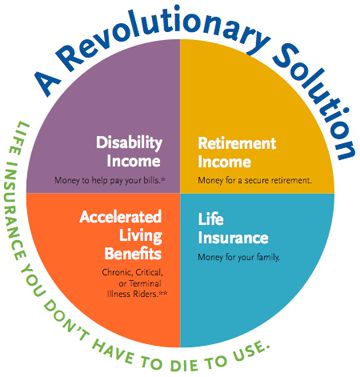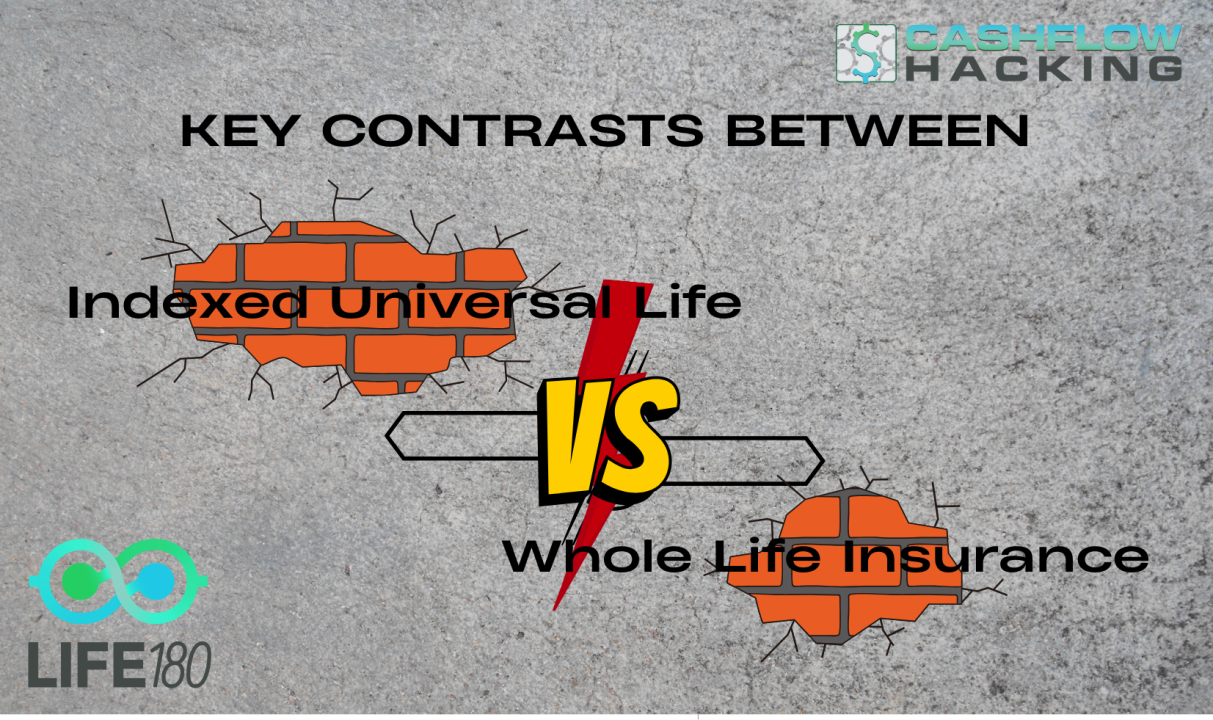All Categories
Featured
Table of Contents
Indexed Universal Life (IUL) insurance coverage is a kind of long-term life insurance policy plan that combines the features of typical universal life insurance with the possibility for cash worth development connected to the efficiency of a supply market index, such as the S&P 500 (IUL for retirement income). Like various other types of permanent life insurance coverage, IUL provides a death benefit that pays out to the beneficiaries when the insured passes away
Cash money worth buildup: A section of the premium payments enters into a money value account, which earns interest gradually. This cash value can be accessed or borrowed against during the insurance holder's life time. Indexing alternative: IUL plans offer the possibility for money value growth based on the efficiency of a stock market index.
How do I choose the right Indexed Universal Life Policy?
Similar to all life insurance policy items, there is additionally a collection of threats that insurance holders must know prior to considering this sort of policy: Market risk: Among the primary threats connected with IUL is market threat. Since the cash money value development is linked to the efficiency of a stock exchange index, if the index does badly, the cash money worth may not expand as expected.

Enough liquidity: Policyholders ought to have a secure economic scenario and fit with the superior payment needs of the IUL policy. IUL enables flexible costs repayments within specific restrictions, yet it's important to maintain the policy to guarantee it accomplishes its intended goals. Interest in life insurance protection: Individuals who require life insurance policy protection and an interest in cash worth growth might locate IUL enticing.
Candidates for IUL should be able to understand the technicians of the policy. IUL may not be the most effective option for individuals with a high tolerance for market risk, those that prioritize low-priced financial investments, or those with even more prompt monetary demands. Consulting with a certified monetary expert who can supply individualized advice is crucial before taking into consideration an IUL policy.
All registrants will receive a calendar invitation and web link to sign up with the webinar using Zoom. Can not make it live? Register anyway and we'll send you a recording of the discussion the next day.
What should I know before getting Indexed Universal Life Vs Term Life?
You can underpay or skip premiums, plus you might be able to readjust your death benefit.
Cash money worth, along with prospective development of that value through an equity index account. A choice to assign part of the cash money worth to a set interest alternative.
Insurance holders can decide the portion assigned to the repaired and indexed accounts. The worth of the picked index is videotaped at the beginning of the month and compared to the value at the end of the month. If the index enhances during the month, rate of interest is added to the cash money worth.
The resulting interest is added to the cash money value. Some policies compute the index gains as the amount of the changes for the period, while various other plans take an average of the day-to-day gains for a month.
What is the process for getting Indexed Universal Life Policyholders?
The price is established by the insurance policy firm and can be anywhere from 25% to greater than 100%. (The insurance provider can additionally change the get involved price over the life time of the plan.) As an example, if the gain is 6%, the involvement price is 50%, and the existing cash money worth overall is $10,000, $300 is added to the money worth (6% x 50% x $10,000 = $300).
There are a number of advantages and disadvantages to consider prior to purchasing an IUL policy.: As with conventional global life insurance policy, the insurance policy holder can raise their premiums or reduced them in times of hardship.: Quantities credited to the money value grow tax-deferred. The money worth can pay the insurance policy costs, enabling the insurance holder to reduce or stop making out-of-pocket costs settlements.
Who offers flexible Iul Growth Strategy plans?
Lots of IUL policies have a later maturity day than other sorts of universal life policies, with some finishing when the insured reaches age 121 or even more. If the insured is still alive back then, policies pay the fatality benefit (however not typically the money value) and the proceeds may be taxable.

: Smaller policy face values do not use much advantage over normal UL insurance coverage policies.: If the index drops, no rate of interest is credited to the cash value. (Some plans use a reduced ensured rate over a longer duration.) Various other financial investment lorries use market indexes as a benchmark for efficiency.
With IUL, the objective is to make money from higher movements in the index.: Because the insurance provider only gets options in an index, you're not straight purchased supplies, so you don't profit when business pay dividends to shareholders.: Insurers cost fees for handling your cash, which can drain cash value.
How can Iul Investment protect my family?

For most individuals, no, IUL isn't much better than a 401(k) - IUL tax benefits in regards to conserving for retired life. Many IULs are best for high-net-worth individuals seeking means to reduce their gross income or those who have maxed out their various other retirement options. For everybody else, a 401(k) is a better investment vehicle since it does not lug the high fees and costs of an IUL, plus there is no cap on the quantity you might gain (unlike with an IUL plan)
While you might not lose any cash in the account if the index goes down, you won't make rate of interest. If the marketplace transforms bullish, the incomes on your IUL will certainly not be as high as a typical investment account. The high price of premiums and fees makes IULs expensive and significantly much less inexpensive than term life.
Indexed global life (IUL) insurance coverage offers cash money value plus a survivor benefit. The cash in the cash money worth account can make rate of interest through tracking an equity index, and with some commonly allocated to a fixed-rate account. Indexed universal life policies cap just how much money you can build up (usually at less than 100%) and they are based on a potentially volatile equity index.
Who offers flexible Flexible Premium Indexed Universal Life plans?
A 401(k) is a better option for that purpose because it does not carry the high costs and premiums of an IUL plan, plus there is no cap on the amount you may make when spent. The majority of IUL plans are best for high-net-worth individuals seeking to reduce their taxed revenue. Investopedia does not give tax obligation, financial investment, or monetary solutions and guidance.
If you're taking into consideration purchasing an indexed global life plan, first talk with a monetary expert that can describe the nuances and offer you a precise photo of the real potential of an IUL policy. See to it you comprehend how the insurer will compute your rates of interest, profits cap, and charges that could be examined.
Latest Posts
Equity Indexed Universal Life Insurance Policy
Is Universal Life Whole Life
Life Insurance Stock Index